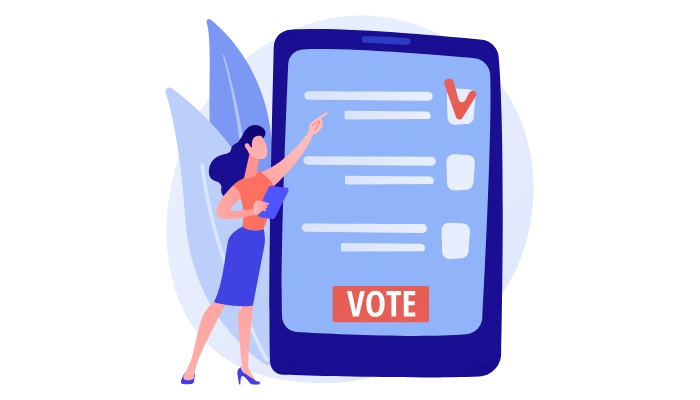
The will of the people is the basis of state power. This will is expressed in free elections held periodically on the basis of universal, equal and direct suffrage by secret and free vote.
The state guarantees the freedom of expression of the will of citizens by protecting democratic principles and norms of electoral law.
This section contains a search through the legislation that establishes the procedure for organizing and holding elections to the Parliament, to the post of President of the Republic of Moldova, to local public administration bodies and regional elections, as well as the procedure for organizing and holding a referendum.
The President of the Republic of Moldova, in his/her position as head of state, represents the state and is the guarantor of the national sovereignty and independence, as well as of the unity and territorial integrity of the state (Article 77 of the Constitution).
The Parliament of the Republic of Moldova (Romanian: Parlamentul Republicii Moldova) is the supreme representative body of the Republic of Moldova, the only state legislative authority, being a unicameral structure composed of 101 deputies elected by lists for a term of four years or by the legislative body. The Parliament of Moldova is elected by universal vote, equal directly, secret and freely expressed.
Political parties:
(1) Political parties are voluntary, legal entity-status associations of citizens of the Republic of Moldova with the right to vote, which, through joint activity and on the basis of the principle of free participation, contribute to the formation, expression and implementation of their political will.
(2) As democratic institutions of the rule of law, political parties support democratic values and political pluralism, contribute to the formation of public opinion, participate through the nomination and support of candidates in elections and the formation of public authorities, stimulate the participation of citizens in elections, participate through their representatives in the legitimate exercise of power in the state, and carry out other activities in accordance with the law.
(3) Political parties may create structures within their membership that deal with the special problems of individual social or professional groups.
(4) In order to implement their political will, parties may join international political organizations.
The Central Electoral Commission is an independent state body, established for the implementation of electoral policy in order to ensure the smooth conduct of elections, for the supervision and control of compliance with the legal provisions on the financing of political parties and electoral campaigns
The main Legal basis of the Republic of Moldova
The Constitution of the Republic of Moldova
Electoral Code No. 325/2022
Law No. 294/2007 on Political Parties
Useful links
Wiki: Election law
Wiki: Electoral system




